I'm receiving UDP packets from a server ( exactly: Open Sound Control packets). i'm storing those packets in a ByteArray.
I want to convert this ByteArray into String so i can exploit the data received. I tried a lot of conversion but each time i'm having non readable charachters.
Here is the code :
| server peerAddr |
server := SocketAccessor newUDPserverAtPort: 3333.
peerAddr := IPSocketAddress new.
buffer := ByteArray new: 1024.
[ server readWait.
server receiveFrom: peerAddr buffer: buffer.
Transcript show: (buffer asString) ; cr ; flush. ] repeat.
I also tried the following conversion but in vain:
buffer asByteString.
buffer asStringEncoding:#UTF8.
buffer asStringEncoding:#UTF16.
buffer asString.
buffer asBase64String.
buffer asFourByteString
buffer withEncoding: #ASCII
Here is the string output :

Any help?
Additional info: The received data is open sound control data so it has a specific formatting, that's why it's diplayed like that, i need to parse ints, floats, strings, whitin a specific bytearray indexs. Does anyone recomand a package that offer those possibilities ?
Thx in advance.